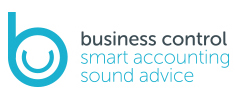Business bank accounts: the lowdown

When it comes to business banking, there are plenty of options open to you. But which is the best for your needs – and can you get more value out of your provider?
Whether you’re interested in getting a business account for the first time or you’re thinking of switching banks, Business Control’s Richard Starkey breaks down the features, rankings, deals and possible offers to help you get more out of your business account.
Quick recap: do you need a business bank account?
If you run a limited company in the UK, your business is legally separate from you as an individual, which means that you shouldn’t use your personal account for its expenses. You’ll need a business account.
However, you shouldn’t require a business account if you’re a freelancer, contractor (as long as it’s not through a limited company), sole trader, or if you do ‘gig’ work like Uber or Deliveroo. This is because you and your business are considered the same for tax purposes. (That said, make sure you check your bank’s terms and conditions because they may state that you can’t use a personal bank account for business transactions.)
Business bank accounts ranked
So which account is the best? A survey conducted by BVA BDRC between January and December 2022 asked SMEs how likely they would be to recommend their provider to other SMEs.
Here are the top five highest rated business bank account providers across five different categories:
Overall service quality
1. Monzo
2. Starling Bank
3. Handelsbanken
4. Tide
5. Metro Bank
Online and mobile banking services
1. Starling Bank
2. Monzo
3. Tide
4. Lloyds Bank
5. Barclays
Overdraft and loan services
1. Handelsbanken
2. NatWest
3. Royal Bank of Scotland
4. Lloyds Bank
5. Barclays
Relationship and account management
1. Handelsbanken
2. Monzo
3. Starling Bank
4. Tide
5. Metro Bank
Service in branches and business centres
1. Metro Bank
2. Handelsbanken
3. Royal Bank of Scotland
4. Lloyds Bank
5. NatWest
Benefits of a business account
1. It’s easier to manage your finances
Some business expenses can be deducted to reduce your tax bill, and this is easier to do if you have all of your business expenses in one place, separate from your personal spending.
Plus, a business bank account makes things clearer for HM Revenue and Customs if they conduct a tax investigation, not to mention it’s far less intrusive.
2. Clearer credit history
A credit history for your business that’s separate from your personal account can also help if you need to apply for a business loan.
But ensure you manage your finances effectively to build a good credit rating. Spending money beyond your overdraft or defaulting on loan payments will negatively impact your credit rating.
3. Beneficial extra features
While you may be required to pay fees that don’t apply in personal accounts, lots of business accounts come with additional features that prove useful such as invoicing tools, integration with accounting software and access to business advisers.
For example, some accounts offer an integration plugin with accounting platforms such as Sage, Xero and more (more detail on this later). This enables you to streamline your processes, avoid duplication of data, and keep track of invoices more effectively.
What are your business needs?
Different bank accounts can cater to needs that may be more or less applicable depending on what shape your business is taking at the moment. According to Business Expert these are the best business bank accounts depending on your business needs:
Freelancers or contractors: Anna
Pros: No monthly fees, instant invoice generation and easy VAT submission to HMRC.
Cons: No overdraft feature and bank transfers cost 20p.
Small businesses: Tide
Pros: No monthly or annual fees, no charge for card purchases and easy invoice creation function.
Cons: 20p charge for bank transfers and no overdraft feature.
Poor credit: Cashplus
Pros: No monthly fees, business credit builder add-on and overdraft up to 2k.
Cons: 30p charge for bank transfers and £2 charge at cash machines.
Businesses operating internationally: Revolut
Pros: No monthly fees and you can send and receive money from 200 countries.
Cons: Only available for limited companies, cannot deposit cash or cheque and no overdraft.
Deals, deals, deals
Lastly, be sure not to miss out on these offers that are currently available.
If you open a Tide business account, they’re offering £50 cashback and a year of free bank transfers.
An HSBC business account is currently offering no monthly current account maintenance fee for 12 months.
Start-up? Royal Bank of Scotland is offering 24 months' free banking for businesses that have been trading for less than a year and have a projected or existing annual turnover of less than £1m.
And lastly, remember those added benefits where you can integrate your accounting software in with your business bank account? Virgin Money is advertising that you can manage your business data in one place, including data from Sage, Xero, Google, Shopify and more.
So regardless of whether you’re starting up or simply thinking of making a switch, business bank accounts can be hugely beneficial to keeping on top of your finances. And if you’d like any more sound advice, feel free to contact the Business Control team to make sure you’re getting the most out of your business bank account.
Check out the rest of our blogs periodically to get the very latest insight and information from the Business Control team.


